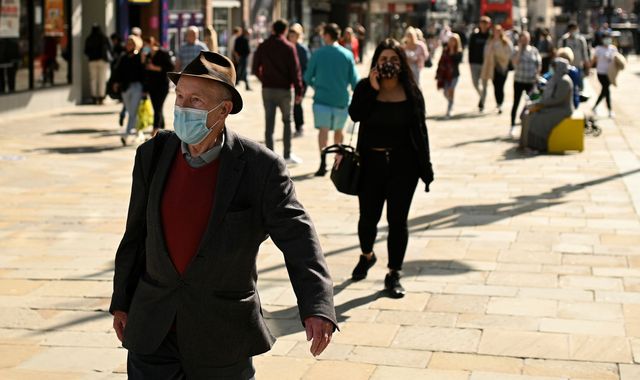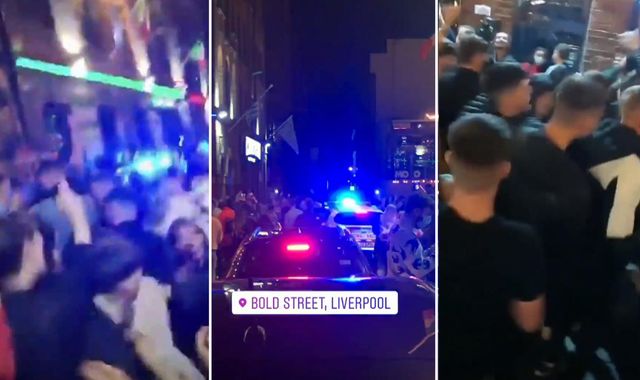Coronavirus: Impact of ‘long COVID’ revealed – one woman needs short breaks after peeling vegetables
Written by News on 14/10/2020
People who suffer from “long COVID” are finding themselves too fatigued to do even simple tasks, according to a new study.

Some of those with persistent and long-lasting symptoms following a COVID-19 infection are left almost bed-ridden many months after the worst of the virus.
The study, which is published in the British Journal of General Practice, featured interviews with 24 long COVID sufferers about their symptoms and the lack of help available.
None of those interviewed were admitted to hospital during their initial suspected or confirmed infection.
Due to the limited community testing for the virus during the early months of the pandemic, half of the study participants had not been tested for COVID-19 – and of those who were, only one had a positive result by that time.
A 50-year-old woman, believed to have had the disease in March, said she thought she had recovered after about 15 days but was then hit by fatigue.
She said: “It was just like I’d been run over… gravity felt like it was applying extra on my limbs.
“And I couldn’t seem to manage to do anything, I stopped walking completely.”
:: Subscribe to the Daily podcast on Apple Podcasts, Google Podcasts, Spotify, Spreaker
Another woman, 34, said she needed a break even after short tasks such as peeling vegetables.
She said: “I have to do a chore, sit down for 15, 20 minutes and then do the next, which frustrates me. It’s like peeling potatoes, I can’t peel the carrots straight afterwards.”
Sufferers said they felt their symptoms were dismissed and that they feared never fully recovering from the virus.
One woman, 50, said: “I feel like there’s a lack of knowledge. And I really wasn’t able to get any answers.”
She acknowledged the illness was new, but said: “Just even for one doctor to look into it a bit and come back to me – didn’t happen.”
Another woman, 42, said she still fears she is “never going to get better from this” after having coronavirus in March.
It comes as a a British man was revealed to have suffered just the fifth reported case of sudden hearing loss linked to COVID-19.
The man, 45, had asthma but was otherwise fit and well before he caught the coronavirus and was admitted to hospital 10 days after his symptoms began.
He spent time in intensive care and was intubated for 30 days, also suffering from complications including high blood pressure, anaemia, ventilator-associated pneumonia and a blood clot.
He noticed left-sided tinnitus and hearing loss a week after leaving intensive care, having had no history of hearing problems, according to the report in BMJ Case Reports.
Experts from University College London and the Royal National Throat Nose and Ear Hospital said sudden onset sensorineural hearing loss (SSNHL) can “easily be missed in an intensive care setting”.
They called for more awareness among medics, adding that an early course of steroids could offer the best chance of recovering hearing.
They wrote: “Despite the low numbers of studies, it is significant to consider the possibility of a relationship between COVID-19 and SSNHL.
“This is the first reported case of sensorineural hearing loss following COVID-19 infection in the UK.
“Given the widespread presence of the virus in the population and the significant morbidity of hearing loss, it is important to investigate this further.”
(c) Sky News 2020: Coronavirus: Impact of ‘long COVID’ revealed – one woman needs short breaks after peeling vegetables






